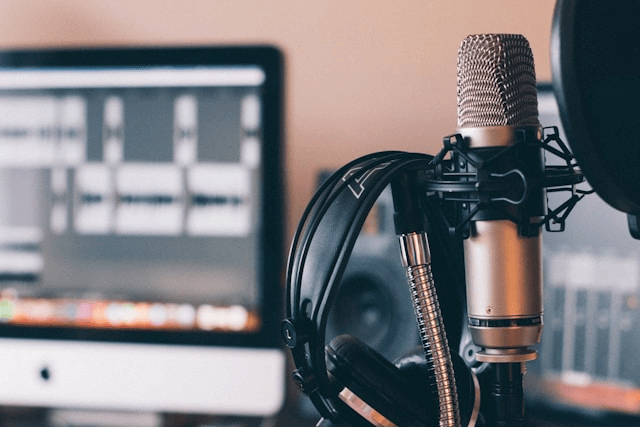You’re on your daily commute, walking your dog, or winding down after a long day. You pull out your phone, open your favorite app, and ask yourself: Should I listen to music or a podcast right now? This everyday decision might feel small, but what you choose can have a big impact on how you feel in that moment and throughout your day.
The ongoing debate of music vs podcasts for mood isn’t about which one is better universally, but rather which one suits your emotional needs at any given time. Whether you’re seeking motivation, relaxation, focus, or companionship, both formats offer unique psychological benefits.
Let’s explore how both music and podcasts can influence your mental and emotional well-being and how to make the best choice for your mood.
How Music Impacts Your Mood
From upbeat pop to soothing classical, music is often our go-to for emotional support. But why does it affect us so deeply?
Emotional Resonance
Music taps directly into our emotions. It can match what we’re feeling or help shift it. When you’re sad, you might play a melancholic tune to feel understood. When you’re happy, high-energy songs can amplify your joy. This emotional alignment helps people process feelings in a healthy way.
Chemical Reactions in the Brain
Science backs up what we intuitively feel. Listening to music triggers the release of dopamine, a neurotransmitter associated with pleasure and reward. It also reduces cortisol, the stress hormone, promoting a calmer mental state. Studies have shown that music can reduce anxiety, improve sleep quality, and even help with pain management.
Mood Regulation
People use music intentionally to manage their mood throughout the day:
-
To energize: Up-tempo tracks during workouts or morning routines
-
To calm down: Soft instrumental or ambient music for relaxation
-
To concentrate: Lo-fi beats or classical music while working or studying
In short, the benefits of listening to music go beyond entertainment, it becomes a tool for emotional balance.
How Podcasts Affect Your Mood
While music connects emotionally through sound, podcasts engage the mind through stories, conversations, and ideas. But do podcasts help with mood in the same way? Absolutely—though in different ways.
Mental Stimulation
Podcasts often spark curiosity and thought. Whether it’s a true crime mystery, a comedy show, or an interview with a thought leader, podcasts activate the brain in unique ways. They can help distract from negative thoughts by focusing attention outward rather than inward.
Emotional Connection and Companionship
Hearing real voices and stories creates a sense of connection. For many, podcasts feel like having a friend in your ear especially for those dealing with loneliness or isolation. The conversational tone can offer comfort, reduce stress, and create a soothing sense of routine.
Productivity and Focus
Podcasts can be useful for background noise when doing tasks that don’t require full cognitive engagement, like cleaning or walking. Some people also find them motivating or inspiring, especially when tuning into personal development, health, or business content.
When to Choose Music Over Podcasts (and Vice Versa)
There’s no one-size-fits-all answer when deciding between music or podcast for anxiety, focus, or relaxation. It depends on your situation, personality, and emotional goals.
Choose Music When:
-
You need to shift or elevate your emotional state quickly
-
You’re exercising, dancing, or doing something physically active
-
You want to relax or fall asleep
-
You’re overwhelmed and need mental quiet
Choose Podcasts When:
-
You crave mental stimulation or learning
-
You’re feeling lonely and want a sense of connection
-
You’re doing a long task and want company along the way
-
You want to explore a topic or dive into storytelling
Consider Your Personality
-
Introverts may prefer music for solo reflection, while extroverts might enjoy the social feel of conversational podcasts.
-
People who process emotions internally may resonate more with instrumental music, while those who process verbally may find comfort in spoken word formats.
By tuning in to how you feel and what you need, you can use both forms of audio content to your advantage.
What the Research Says
Scientific studies comparing audio content and mental health are still evolving, but early findings are promising:
-
A 2020 study published in Frontiers in Psychology found that music listening can effectively reduce symptoms of depression and anxiety.
-
Research also shows that educational and narrative-driven podcasts may improve mental engagement and offer relief from loneliness and boredom.
-
Experts suggest that audio content can support mental wellness, particularly when it aligns with the listener’s needs and environment.
So whether you prefer beats or banter, both formats can serve as valuable tools for emotional self-care.
Final Thoughts: Music vs. Podcasts for Mood
In the debate between music vs podcasts for mood, the real winner is personal awareness. Choosing the right audio content at the right time can enhance your emotional well-being, productivity, and focus.









